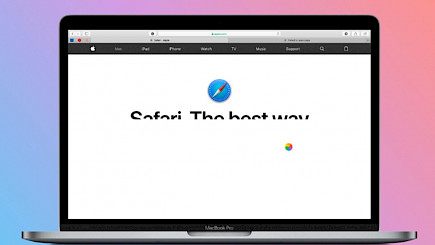
Safari has been the default web browser for WebKit on macOS since 2003.
Since its 2007 debut, Safari has been the default web browser on iOS. Apple has been reluctant to allow other browsers on its mobile platform. Instead, it restricts all third-party browsers to the WebKit engines.
Safari is the default browser on all Apple devices. It is built from the ground up to ensure privacy and efficiency. Apple claims its browser is faster than any other browser on macOS.
Safari has some key features, including Apple Pay and the ability to save and share websites.
But, there are still a lot of features that you may not know of and we are here to enlighten you about them.
Thus, without further ado.
Let us begin…
Apple Safari Web Browser Features
Many agencies have started tracking internet users to provide relevant ads. As the web became increasingly dependent on ad revenue, they began to track our activities. Unfortunately, many internet-based companies have made it a business model to invade users' privacy, and Apple has been fighting back against it.
Apple's Safari software updates have increased user-facing protection. They now expose website tracking and retain user data only where it is needed.
Intelligent Tracking Prevention

Users will see social media buttons while browsing the internet. These embedded trackers are used to check if your IP address has visited a particular webpage.
Apple has stopped these embedded trackers by using Intelligent Tracking Prevention in Safari's latest version.
Sandboxing

A webpage is generally a collection of text and images, which should be rendered using basic code. The web has seen a lot of technological advancements over the years, including animated videos and interactive menus. This requires JavaScript to execute some code locally.
A webpage can execute code on the CPU of a user's machine, and it can also run code that is hidden within the page.
Therefore, pages that require JavaScript to function can be hacked by malicious actors.
Although Javascript can be disabled in the settings, it would break many websites and make browsing more difficult.
So Apple is taking a different approach and sandboxing its browser from the rest.
Each tab in Safari is isolated from the others, so any malicious code that is executed on one tab can't affect other tabs or other apps. However, it would cause the tab to crash or force the system to not warn users about the action being performed by the code.
Safari: Fingerprinting Protection

Websites make use of a device's signature to correctly render a page. A webpage can be more accurately rendered for the device by asking for the screen size, model, browser, and IP address.
However, this data can be used to track users by creating unique fingerprints of each person who visits the website.
Apple provides a simplified profile that allows page access to all this information. This allows the site access to the information it needs to render the webpage while keeping the user's identity private.
Safari: Auto-fill

Safari can use information from calendars and contacts to surface auto-fill suggestions whenever a field is being presented. Auto-fill can also be used to fill in passwords that are stored in keychains or third-party password service accounts.
Safari will generate strong passwords and save them in the cloud if a password is requested when creating an account.
For example, suppose a password with automatic fill is asked for. In that case, the user will need to authenticate using biometrics such as Touch ID or Face ID.
For syncing, credit card numbers can also be saved. In addition, secure data such as passwords and credit card numbers are protected with AES encryption of 256 bits.
Safari: Battery optimization and speed

Apple claims that it has the fastest desktop browser and a JavaScript engine.
- These tests were done to see if Safari is comparable to other browsers.
- Jetstream is up to 1.4x faster than Firefox on macOS for testing JavaScript performance.
- Motionmark-Up to 2.0 times faster than Chrome for macOS when testing animation rendering
- Speedometer-Up to 1.4x more responsive than Firefox on macOS
Apple claims that Safari will help your device battery last longer than other browsers on macOS.
- Safari offers up to 3 hours more browsing time than Chrome Firefox.
- Safari offers up to 4 hours more video streaming than Chrome Firefox.
The Mac is more flexible in terms of user customization and control. This can be done by using small programs that are scattered throughout the operating system. In addition, Apple allows third-party extensions within Safari.
macOS Big Sur will allow users to run popular add-ons in other browsers. These extensions will be available for Safari users only.
Winding-up
And those were all the special features of Safari that you might not have known of.
Hope you liked the article. We will be back soon with other fun hacks and tutorials, until then. Stay Tuned, Good Day!





